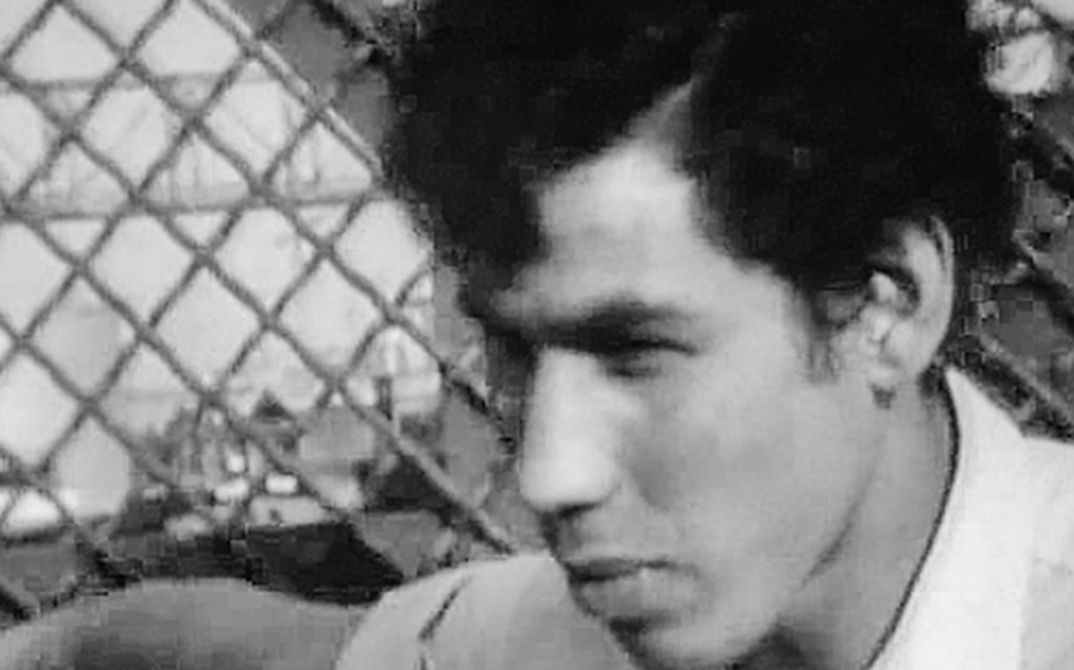Rachid’s journey
“We are the ones who left their village and didn’t find the city.” This is the central theme of the beautiful film that Annie Tresgot dedicated to the “travellers”, the Algerian emigrants who live and work among us: hundreds of thousands of people who are temporarily tied to us by very recent history, a seven-year war, a specific political decision and economic pressure.
A double contract, at once desired and merely tolerated, whose lack of clarity results in equal parts from the current secret exploitation, the repeated accusations and an all too oppressive past.
The author of this film, which was presented in the framework of the International Critics’ Week and accepted in the programme of the ORTF [Office de Radiodiffusion Télévision Française, France’s public broadcasting company from 1964 to 1974, the editors], built her theme (…) around one person:
Rachid travels from Bougie [current Béjaïa, a port city in Algeria’s Kabylie region, the editors] to his father, a day labourer in Aubervilliers, to take over his position at what could be called the “French labour front”. This allows the father to return to Kabylie.
The journey, his discovery of Paris, his encounter with his uncle and cousins from the northern suburb, his job search, his coexistence with Portuguese labourers, his wandering between Clignancourt and La Chapelle, his relations with the foreman, the attic, the banks of murky canals, and the rain at the outskirts of the city – within this whole are spliced short sequences depicting trade unionists in the hospital and children who are returning from holiday camp in the countryside: all of this exudes the simple reality, the daily hustle and bustle, the average pressure of everyday life.
What is learned that wasn’t already known or suspected? At least this: that these emigrants have not burnt all their bridges behind them, or at least do not believe they have, and that they really feel like they’re “in transit” here, that they regard their stay in France as something provisional and temporary.
A plea for a thesis? Nothing of the kind. All of the motifs treated in the film illustrate only the yearning and impatience for a return to the homeland and the feeling of being different, of exile, of frustration. Annie Tresgot’s film is in no way a pointed accusation: the trials to which the protagonist is subjected are ordinary, and the main character, for whom politics and trade unions are alien, transmits no message, demonstrating more world-weariness than joie de vivre. But this precisely dosed, individual, secret disaffection may say more than a political assembly. At one point, a militant union leader says, “We owe racism to the intrigues of the ruling class.” One would like to believe that. But the film says no such thing. It shows much more loneliness than malice; it describes less a cruel world than a closed, barricaded one. Perhaps Rachid will discover the collective struggles beyond his personal bitterness and leave behind the clan, ethnic complicity and camaraderie of the sidewalk cafés. The film shows how Rachid hesitantly liberates himself from rules, taboos and prohibitions. He cares less and less about this aspect of paternalistic authority or about religious tradition. But that’s not the case with his attachment to his country. What he learned in France – and it was a hard lesson – is to be a worker. But, also, to feel like an Algerian.
(J. L., Le Monde, Paris, 17 June 1971, Infoblatt No. 24, 1. Internationales Forum des jungen Films, Berlin 1971)
